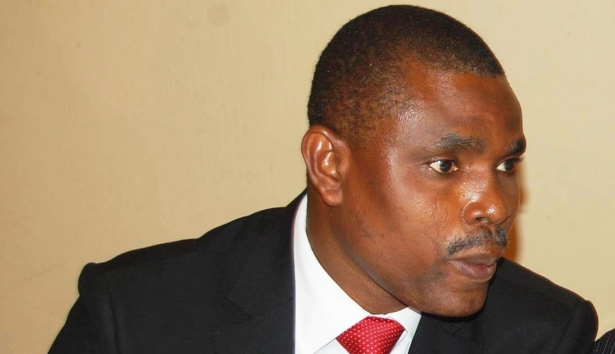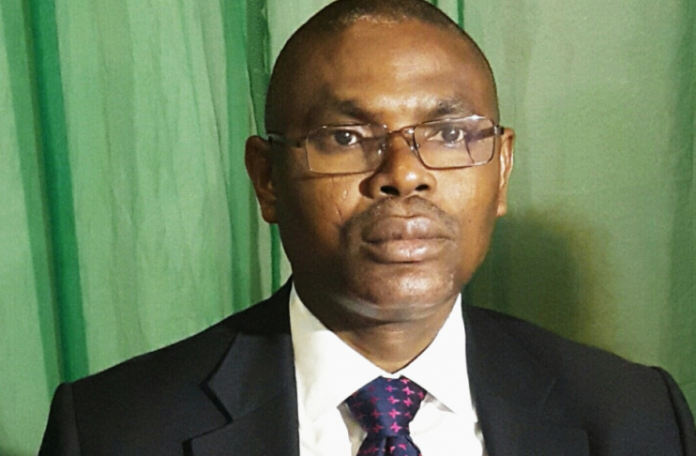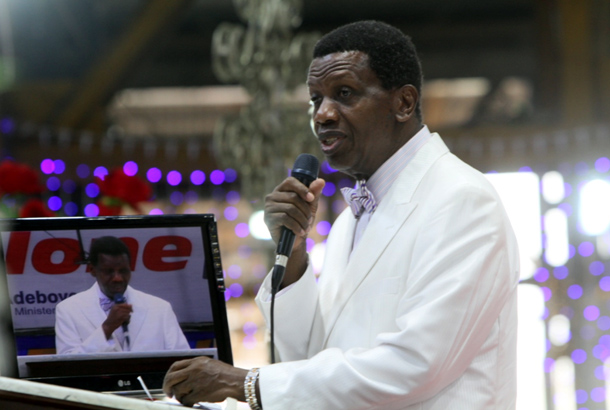Last week could have been named the Jim Obaze week. It was, really. How a relatively obscure public servant was thrust on the headlines with shards of his alleged misdemeanor strewn across the pages and powerful forces calling for his head is not the kind of drama seen often.
Well, they finally hanged him by the ropes of his own alleged sins, ranging from allegations of insubordination to vindictiveness and arrogance.
Some have even added that Obaze was a renegade pastor of the Redeemed Christian Church of God who, after failing to sleep with his former personal assistant, also a Redeemed pastor’s wife, decided to launch a deadly backdoor attack on the church and its General Overseer, Pastor Enoch Adeboye.
I can’t seem to get my head around how Obaze, a relatively unknown public servant and executive secretary of the Financial Reporting Council, became such a dreadful monster.
Advertisement
I’m curious and partly intrigued by how his actions could have threatened established ecclesiastical order and unleashed pressure on President Muhammadu Buhari to pull the trigger.
Buhari is not famous for the sort of quick action we have seen in the Obaze case. So, what happened? Is Obaze the clear and present danger that he has been portrayed to be? Or was he an unfortunate victim of politics?
Of all that I have read on this matter so far, an article by Dr. Oladimeji Alo, former CEO of the Financial Institutions Training Centre, appears to provide a fairly balanced view. It’s important to reproduce the article substantially:
Advertisement
“For many years, Jim Obaze was the head of the Technical Department of the Nigerian Accounting Standards Board (NASB), the predecessor organisation of the Financial Reporting Council. He is arguably one of the most knowledgeable Nigerians alive in the special area of accounting standards.
“One of the conditions given to Nigeria, if it were interested in attracting foreign investments and improving its ranking in international community, was the adoption of the International Financial Reporting Standards. The NASB was naturally central in midwifing the new laws. It ultimately transformed into the FRS.
“As it often happens when legislations are driven from outside the countries (by international agencies and foreign missions) the FRC Bill did not attract sufficient attention and scrutiny of several stakeholders in Nigeria until it was passed into law. That was the situation when bodies, like ICAN, woke up only to find that FRC had eroded some of their own mandates and privileges. FRC became a monster overnight!
“Obaze was very active in processing the Bill. He was also appointed as the executive secretary of FRC on merit. The only challenge was that the law gave his office so much power that it would take a saint not to abuse them in the absence of the checks and balances which a functioning Board of Governors (or Directors) should provide.
Advertisement
“Given the wide-ranging powers of FRC, Obaze came to be described as the ‘Super Regulator’. He loved that title. Witness his epic battle with Sanusi Lamido Sanusi, the erstwhile CBN governor, and with Atedo Peterside and Stanbic IBTC Bank.
“Some three or four years ago, FRC, under Obaze, embarked on a project to harmonise the multiple codes of corporate governance we have in Nigeria. This was a commendable move. He set up a technical committee under the leadership of Mr Victor Odiase, a member of the Centre Table of Island Club.
“The Committee did very good and extensive work. Where the whole thing went awry was the point when the Committee and its sponsor, the FRC, became ’emotional’ and ‘defensive’ in the processing of the draft codes. The usual practice is to expose the draft codes to stakeholders and harvest the inputs of these stakeholders to improve the draft. That did not happen. The Technical Committee and the FRC ignored several of the comments of those who attended the public hearings or submitted written review comments.
“I personally spoke extensively at one of the public hearings. I followed up my contribution with a five-page review comment on the draft code. Neither the Technical Committee nor the FRC as much as acknowledged my contribution, much less reflect any of the points in their final codes. I even gave Mr. Odiase a personal copy of my written comments as a demonstration of my commitment to the project. The same fate attended the contributions of several professionals and interest groups.
Advertisement
“When the final code was released, it was widely criticized by all and sundry. The FRC thereby lost a golden opportunity to make a difference in corporate governance.
“There were three codes in the project. a) a code of corporate governance for all listed companies and public interest entities. b) a code for incorporated entities limited by guarantee. These include charities, churches, mosques, clubs and such entities. c) a code for public entities. These include parastatals and other government bodies.
Advertisement
“When the final codes were released by FRC, the supervising minister was inundated by petitions from several groups whose contributions were shut out by FRC in the development of the Codes. Also, the FRC had no Governing Board at the time and could not have finalised such an important regulation without the input of the Board.
“The Minister of Investment and Trade ordered that the code be suspended until he had had an opportunity to review it. Obaze and his team adopted subtle media campaign to challenge the authority of the minister. It was therefore a matter of time that Obaze would be sacked.”
Advertisement
Alo’s intervention is very useful but still leaves a number of questions unanswered. How did the minister convey his “order,” especially since Obaze maintained, throughout, that the “order” was not written? Also, since no one has so far accused Obaze of implementing the new, suspended regulations, was Obaze fired for implementing Section 9 of the existing regulations passed several years ago?
There are three main reasons why the public is justifiably interested in what is going on in faith-based organisations and not-for-profits: one, they are registered under the country’s laws; two, they manage considerable amounts of funds and assets pooled by members of the public; and three, they request tax exemptions, thereby denying the public revenue which would have accrued to government.
Advertisement
The least that is required under the circumstances is a greater degree of transparency. Without the UK charity commission, how would the public have known that the KICC invested $5million of church funds in a ponzi scheme?
Of course there are provisions in the FRC’s governance code – on age ceiling and tenure limits, for example – which I could not find equivalents for anywhere else (not in the UK, the US, Canada or South Africa, at least). Growing financial complexity requires sensible regulatory oversight.
It’s not enough for Buhari to sack Obaze, obviously out of panic to appease influential faith leaders, and announce that the controversial code has been suspended.
He’s kicking the can down the road. There is need for clarity about why Obaze was suspended and exactly what the government wants to do about the controversial aspects of the new, revised code, which, interestingly, is NOT even being implemented.
Ishiekwene is the MD/editor-in-chief of The Interview and member of the board of the Paris-based Global Editors Network
Views expressed by contributors are strictly personal and not of TheCable.
Add a comment







